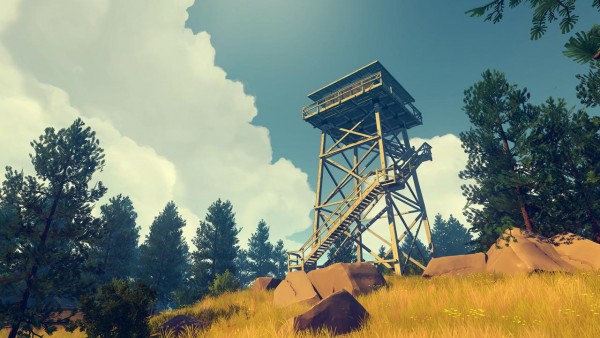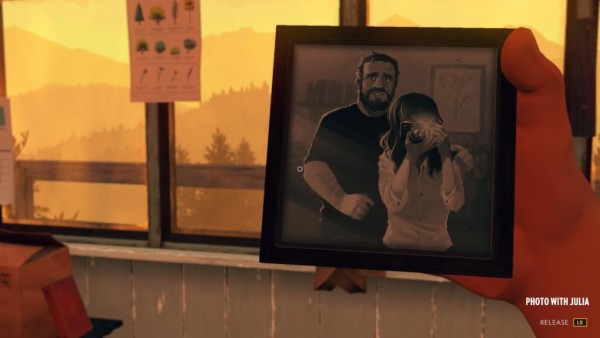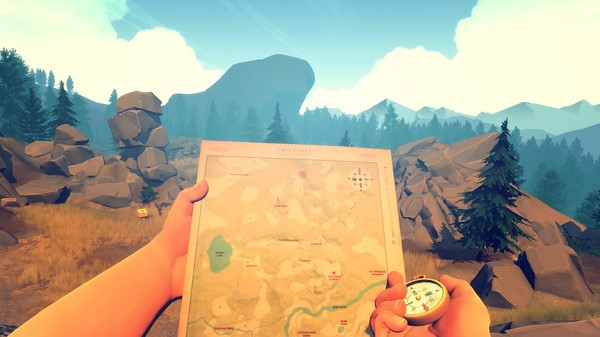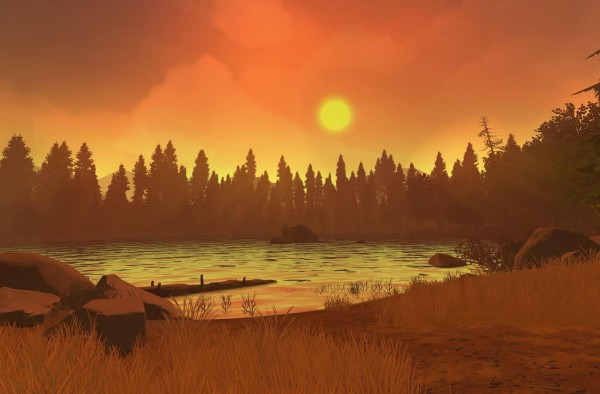
Due Diligence: Forest For The Trees
Leigh Harrison jumps at shadows.
A couple of weeks ago I went to IKEA with my partner. We met after work and tried to jump on a bus to get there, but it being a Friday night we didn’t have much luck. We decided we’d walk instead, as we’ve done loads of times. We took a shortcut to avoid the boredom of trudging down the main road for the dozenth time, which took us around the back of an industrial development and under the road we’d have normally taken. The little path was surrounded by overpasses and trash, and its streetlights had long been smashed up or fallen into disrepair, leaving very little to illuminate our narrow way. We were surrounded by the massive slabs of concrete on either side of us;—not so much a rock and a hard place, but just two really big rocks. Rocks covered in gang signs and bodily fluids.
I looked over my shoulder a few times as we walked, convinced that something bad was going to happen. An evil man with a tire iron. A group of youths riled up on cider, pills and indignation. A wild pig out for blood. What? It could happen. I’ve often wondered how people find their way into the alley or wooded copse where their mutilated body is discovered months later. Why would anyone have reason to ever go there? Now I know: the lure of cheap furniture and the avoidance of repetition probably play a big part in most murders. Anyway, we were both spooked, and it wasn’t fun. Most likely, we were about to be chopped up by a maniac, or kidnapped and sold into slavery on a converted oil tanker anchored in the Baltic. And then… Then we got to IKEA and went shopping. Nothing happened. Nothing was ever going to happen, was it?
Nothing ever happens. Not really. We leave work, go shopping, buy something, then go right home. Maybe we have a glass of wine. Have a chat. Eat a pizza. Make love. But that’s it really, because life is unglamorous. That isn’t to say it’s not enjoyable, or fun, or even—when we really put our minds to it—exciting. It’s just not that, well, “woah”. From the outside it might not seem noteworthy, but when you live it it’s just fine. It’s an overused statement, but the little things really do mean the most.

Firewatch opens with a ten-minute segment that appreciates this hackneyed truism, intercutting intimate text adventure with an atmospheric plod through the Colorado wilderness. We play Henry, as he both meets his future wife in the 70s and then subsequently runs away from their shattered marriage in 1989. As we make up the temporal distance between their meeting and separation, we’re given text-based decisions that shape their relationship. Does Henry buy for his wife, Julia, the dog she wants or the one he’d actually like; should he outsmart a mugger with charm and wit or simply stomp the life out of him? These binary choices allow us to succinctly shape our version of Henry, their rapidity condensing his life into a series of flashpoints which define our understanding of him. Them being cut with images of an unavoidable consequence—Henry solemnly leaving the world behind in favor of the isolation of a national park—works fantastically to anchor them within a wider context and thus reinforce their import. We simultaneously see the couple’s carefree days and their strife, aware that both are inextricably linked; our actions at once crucial and entirely meaningless in Henry arriving at his position in life. Nothing we did altered the couple’s ultimate destination, but we touched enough little parts of their lives in that ten minutes that we’re inextricably linked to them.
This short segment shows so much of their relationship. We partake in Henry’s attempts to drunkenly woo Julia. Then their blossoming romance, going steady, having a good time, and planning a future. Then We’re also there when, all of a sudden, things begin to go wrong. After we’ve been so effectively acquainted with them as to genuinely care, Juilia is diagnosed with early-onset dementia. Henry struggles to look after her, becoming an alcoholic in the process. Julia moves to live with her parents in Australia, and Henry burrows into the anonymity of being a forestry service fire lookout. This opening sets the tone of the piece perfectly, adding increasing layers of emotional dread as it goes. Juxtaposing Henry and Julia’s slowly unravelling relationship with instances of Henry physically and emotionally distancing himself from his anguish is an incredibly affecting means of drawing the player into his plight and mindset. We literally walk with him as he runs away from his problems, all the while being complicit in his cowardice. Through this, we become him. Henry ceases being a simple avatar for the player; we embody him fully as a character, which is so infrequently the case when it comes to videogames.

For whatever reason though, Firewatch never really capitalizes on its immaculate beginning. Instead of using Henry’s past experiences to shape what comes next, they essentially act as elaborate justification for another story entirely. They neatly explain away why he’s in the forest seeking isolation, but never really come to bear on much else. Once Henry makes it to his watchtower, he’s greeted by Delilah. She is Henry’s boss and lives a few miles away in another tower, and the two speak regularly over radio. While they never physically meet, over the course of the story they learn more about one another through multiple-choice conversations similar to the opening text adventure. Delilah says something and Henry chooses his reponse from a handful of options. That’s it really, besides a whole lot of walking, climbing, and abseiling.
Firewatch is a character piece. Through Henry and Delilah’s conversations it explores many, many facets of the human condition. Dealing with grief, staying loyal to a distant partner, loving someone through adversity, long distance relationships, fighting carnal instincts, abating curiosity, and finding personal strength. Throughout all this, though, Julia and Henry’s past is largely absent. Save for a couple of occasions, the story is almost entirely focused on Henry now—the man in the forest—and what he’s going through right this minute. This, of course, heavily revolves around Delilah, but it is noticeable just how little the other woman in his life comes into play. It’s jarring that a man mere weeks away from a decade-long relationship—regardless of him wanting to run from it—would pay so little mind to his lost love. Despite this, the interplay between the two leads does still vere down a great number of interesting paths and is, in and of itself, very compelling. Both characters are superbly acted, and their growing fondness is touching and often very funny. Beyond a little overt flirting during one sequence, nothing particularly exciting happens between the two. Their relationship is a strikingly normal one, but one so accurately written that it comes off as wholly naturalistic and thus utterly absorbing. This is Firewatch’s raison d’être: it so wonderfully captures those little things so often left out of fictional relationships; it is nuanced, subtle, and restrained. And then everything changes.

Early on, as you’re trekking through the Colorado hills, you happen upon a strange figure silhouetted against the cloudless night sky. They see you and scamper off, leading Henry to grow suspicious of his isolated surroundings. After this, a lot of worrying things happen. His tower is trashed, as too is a nearby campsite. A couple of young girls go missing and are presumed dead, Henry being the last person to see them alive. Henry finds transcripts of his conversations with Delilah, becoming convinced someone is cataloging and analysing their relationship. He later stumbles across a mysterious area of woodland fenced off from the rest of the park. Someone is following Henry as he goes about his duties, making him increasingly paranoid.
The intrigue unfolds gently to begin with, providing little pockets of excitement to accompany the conversations and character development. They draw you into the game’s world further and faster than the slow burn of its character-driven main plot could reasonably do, and in this they succeed. About a third of the way through the game they begin to take over, though. Focus shifts from Henry and Delilah discussing all sorts of subjects to them being entirely fixated on the strange goings on around them. They stop learning about each other, flirting, joking, putting the world to rights, and sharing their fears. Instead, they chase shadows, become gripped by paranoia, and grow apart. They do so not in ways that tie back directly into the mysteries themselves, their relationship simply recedes from the spotlight as the game turns their story into a prosaic mystery thriller, as if there isn’t the time or inclination to continue building their characters.
I don’t think Firewatch believes it is interesting enough to exist without all its bumps in the night. It layers in strand after strand of intrigue at a disorienting pace. Is there a maniac in the woods? Is the government conducting clandestine experiments? Is Delilah involved in a conspiracy? Is Henry going mad? No, of course not. By the end of Firewatch nothing’s happened. Nothing was ever going to happen.

Alright, some things do happen, but the game’s big reveal returns everything back to the realm of plausibility and human tragedy. There was no conspiracy, just someone else running away from their problems. An accident, a dead child, a broken father, a personal exile. It’s satisfying and heartbreaking in a way not unlike the text adventure opening. Like then, Firewatch shows it keenly understands that telling stories about characters we care for is all an audience needs. Which is why it’s so infuriating that about half of the game is a series of literal and tonal red herrings. They all ultimately lead to nothing, so why throw them in in the first place?
I think it all goes back to conviction. A game about walking through the countryside building a relationship with someone can be a hard sell. But the writing and characterisation behind Henry and Delilah is so good that it shouldn’t be, especially once players are grabbed by the game’s striking opening. I can’t deny that its more conventionally exciting moments were exhilarating—the thriller aspects compelled me to run through the game in two sittings—but afterwards I was left feeling a bit manipulated. And to what end? We add elements of intrigue and fear into our mundane trip to the shops to alleviate the boredom of walking down the same roads again, because in these situations it’s all we’ve got. Firewatch doesn’t need added incentives to make its journey interesting, but goes ahead and includes them all the same, as if to cover its back against being labelled slow or boring. In doing so, however, it thumbs its nose at those players it grabs from the off, and ends up existing as an insufficient amalgam—neither deep enough to be a thoughtful character piece, nor tightly or satisfyingly plotted as a truly effective thriller.
Firewatch, alongside the likes of Dear Esther and Gone Home, will be remembered as the beginning of a new subset of narrative-led videogames. But it is far from perfect. It is too shackled to past narrative conventions—or at least to a perception of what a videogame story should be—for it to be anything but a mid-point on the path to artistic growth. It is brave in many respects, and its heavy emphasis on conversation over action, even when the content of those conversations veers off into the fantastical, is undeniably engrossing. Firewatch should know that it is good enough to stand on these merits alone. In including the hollow conspiracies and paranoia, especially because they derail the character exploration at its heart, it dilutes its deft artistry and appears unsure of itself. Firewatch should be confident and proud, even aloof. It is a great leap in the depiction and depth of videogame characters, and yet it tries to disguise itself as one of its peers. It is better than that; it is better than most of us. If only it could see it.
Leigh Harrison lives in London, makes DVDs for a living and owns a hamster. He likes canals and rivers a great deal, and spends a lot of his time walking. He occasionally says things about videogames on the Internet, and other things on The Twitter.